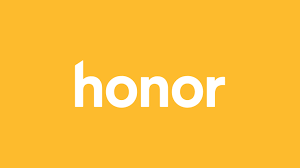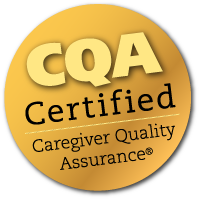by Stephen Tweed
You probably read my article on March 2, in Home Care CEO Report about “Who’s Disrupting the Home Care Space?” In that article, I talked about Honor, the digital home care company that started in San Francisco with $20 million on venture capital. The trend in the industry has been called “the Uberization of home care.” It’s a take off on Uber, the digital APP for ride sharing that is disrupting the taxi cab industry.
I just saw an article in Home Health Care News titled “Honor Gaining Cred in New LA Market.” For our southern California readers, pay attention to this.
In the interview, reporter Amy Baxter talked with Steve Siegel, the General Manager for Honor in Los Angeles. While most of the interview was focused on how they will enter the LA marketplace, the piece I picked up on was their conversation about caregiver turnover and retention. This fits into our ongoing work in “Conquering the Caregiver Recruiting Crisis.” Here’s what Steve Siegel said:
“The big coverage story for us was the W-2 initiative. Being able to give care professionals better wages and having a W-2 with benefits and equity in the company, our attrition rate has been really low. It’s really helping us be able to grow and scale when we don’t have the turnover. On average in this industry, there’s about a 50%-60% turnover. We’re below 15%. So we have unbelievable stats when it comes to that, but we are also extremely selective in who we choose. By only taking the top 5%-10% of people who apply, we’re able to ensure that people want to be here for the long term, and that they want to work for us at Honor.
I think we’ve been able to deal with a lot of these pressures by thinking about that from the onset. That’s going to allow us to contiue to scale and not have some of those other challenges that you’ll see in some of the other companies. We are seeing benefits from creating a different type of environment. We not only want to champion providing great in-home care, we also want to champion being a great employer.“
Selecting only the Best
I love what Steve Siegel said about “only taking the top 5% to 10% of people who apply.” That’s what we have been telling the home care industry for the past decade through our Caregiver Quality Assurance program. This online pre-employment assessment gives you a close look into the attitudes, behavior, and thinking ability of applicants. When I spoke with Seth Sternberg, the co-founder and CEO of Honor several months ago, he talked about their pre-employement assessment process. I asked him what tool they are using to select caregivers, but he wouldn’t tell. “That’s part of our secret sauce.” he said.
While you won’t be able to use Honor’s “Secret Sauce,” you can have your own secret sauce for selecting the top 5% of applicants using the Caregiver Quality Assessment from Leading Home Care. You’ll also want to become a Member of the Home CEO Forum and join our monthly CEO Virtual Round Table to hear other agency CEOs talk about one element of Conquering The Caregiver Recruiting Crisis.
The W-2 Initiative
I looked into the “W-2” Initiative, as many readers have asked about it. Under their new status, Honor’s in-home caregivers will receive health insurance and benefits such as workers’ compensation and paid sick leave, as well as training and advancement opportunities, the San Francisco-based company announced today. These workers also will receive an equity stake in the company.
“We will still have flexibility,” Honor co-founder and CEO Seth Sternberg said. “[People] still could decide they want to come onto the platform for five or ten hours a week, but they’ll be part-time employees.”
The big question I’m being asked by Members of the CEO Forum and our Mastermind Groups is, “How will Honor and Home Hero sustain their momentum if they now have to pay workers comp, unemployment, and Obama Care premiums?”
We all know the economics of home care. We know that the direct cost of care across the industry runs at 60% of revenue when you include wages, workers comp, unemployment, and FICA. We don’t know yet what impact Obama Care will have on Gross Margins. If the “Digital Disruptors” are paying more, plus including benefits and stock options, what price will they need to charge to get the margins they need. Maybe they don’t need 40% gross margin to cover all of their costs. We shall see.
What are your thoughts. Let us know by sending your comments to Questions@leadinghomecare.com or join the conversation in the Leading Home Care Network on Linked In.






